Nine researchers receive coveted ERC grants
23 Nov 2023
The European Research Council supports innovative projects through Consolidator Grants.
23 Nov 2023
The European Research Council supports innovative projects through Consolidator Grants.
Quantum dynamics, media research, genetics, political science, astronomy, medicine, and art history: nine researchers from a wide variety of disciplines have been awarded a Consolidator Grant in conjunction with LMU. The award comes with funding of up to two million euros for a period of five years. Through Consolidator Grants, the European Research Council (ERC) helps excellent scientists expand and consolidate their innovative research. The basis for the ERC’s decision in awarding the prestigious grants is the scientific excellence of the applicant and of the proposed project.
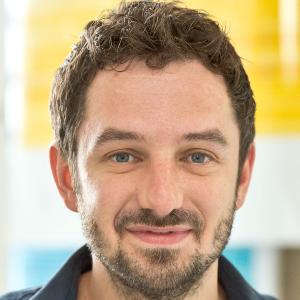
Prof. Dr. Korbinian Schneeberger | © MPI-PZ
Professor Korbinian Schneeberger heads the Genome Plasticity and Computational Genetics research group at LMU’s Faculty of Biology and group leader at the Max Planck Institute for Plant Breeding Research in Cologne. He investigates how and to what degree genomes change and how these changes affect the phenotype.
Despite being one of the three most important food crops in the world, the potato has seen little improvement over the past 150 years. This lack of progress is owing to the plant’s complex genome, which possesses four copies of each chromosome, placing obstacles in the way of the principal plant breeding approaches. Creating potatoes with just two chromosome copies could make it easier to breed new varieties, but efforts in this direction have been thwarted by the large number of harmful mutations in the potato genome.
With his project BYTE2BITE (Unlocking the complex genomes of European potatoes for modern breeding), Schneeberger sets out to overcome these problems. He plans to describe the complete genomic diversity of the potato and use this resource to develop new tools for the efficient typing and analysis of potato. Equipped with these tools, he wants to set up a genomics-supported pre-breeding program that heals the potato genome from the mutations of the past to finally enable efficient potato breeding and ultimately to contribute to global food security in the coming decades.
Having completed his doctorate at the Max Planck Institute for Developmental Biology in Tübingen, Korbinian Schneeberger became leader of the Genome Plasticity and Computational Genetics research group at the Max Planck Institute for Plant Breeding Research in Cologne. In 2019, he additionally took up a professorship at LMU.

Prof. Dr. Sahana Udupa | © Andreas Focke
Professor of Media Anthropology at LMU, Sahana Udupa has already received European Research Council funding for her work on the politics of digital media through an ERC Starting Grant and subsequently a Proof of Concept Grant.
For many years, the large social media platforms were the main focus of societal debates surrounding hate speech and threats to democracy. But ever since Elon Musk drove many users on to smaller platforms such as Mastodon with his maverick policies on free speech, these platforms have attracted greater attention as alternative avenues for progressive discourses. In the meantime, small platforms in some contexts have also facilitated exclusionary narratives, for instance, the far-right movement Britain First has grown its influence on the microblogging site Gab. In the project SMALLPLATFORMS (Beyond the Big Tech: Contentious Speech on Small Platforms), LMU Professor Udupa Sahana will investigate these small platforms in a cross-cultural context for the first time. Her study will include on-site and online explorations and will encompass Germany, Britain, Kenya and India. Using a unique conceptual model, the project will explore whether and in what way forms of contentious speech are associated with practices particular to small platforms. In this way, Udupa will bring the discourses on small platforms into anthropological investigation at both empirical and theoretical levels, using ethnography, algorithm auditing and computational methods.
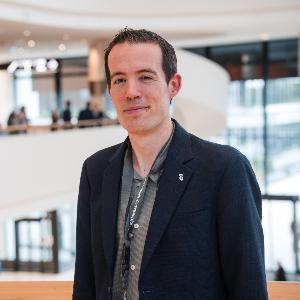
Prof. Dr. Sebastian Kobold | © Patrick Lux
Sebastian Kobold is Professor of Experimental Immuno-Oncology at LMU and Deputy Director of the Clinical Pharmacology Department at University of Munich Hospital.
Although cellular therapies are successfully used to treat hematological cancers, they have yet to establish themselves for the therapy of solid tumors. In his ERC project CATACLIS (Cancer tailored next generation cellular therapies), Sebastian Kobold plans to develop cellular products that are based on patient characteristics, with the ultimate goal of providing more effective cellular therapies for patients with solid cancers. To this end, the medical researcher will use individual cell datasets from patients to design next-generation cellular therapies. These therapies, would then have the potential to improve the treatment of solid cancer types in three important respects: by giving the therapeutics much better access to the tumor tissue; by generating a much more specific selection of target antigens that are tailored to the individual patient; and by decreasing the requisite immunosuppression as a consequence. Through this project, Kobold wants not only to develop new cellular products for testing in clinical trials, but also to generally promote approaches that advance the development of therapies based on patient data.
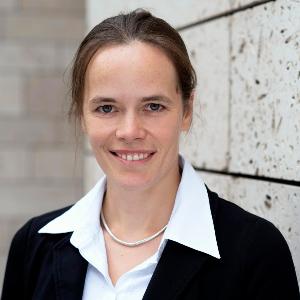
Prof. Heidi Stöckl | © Heidi Stöckl
Heidi Stöckl has been Professor of Public Health Evaluation at LMU since 2021. Before that, she was a researcher at the London School of Hygiene & Tropical Medicine.
According to estimates, one in four women worldwide are the victim of physical and/or sexual violence at the hands of their partner in the course of their lives. Pregnancy represents a particular, life-changing life phase. Violence can occur for the first time or intensify during pregnancy, and occasionally it can abate during this period. Abuse can have serious consequences for mothers and their children and can be handed down to the next generation. In the project IMPROVE_LIFE (Investigate maternal and paternal risk factors for violence during pregnancy: lasting impact for everyone), Prof. Heidi Stöckl plans to research the risk and protective factors for violence during pregnancy, studying its short- and long-term consequences and its effects on the next generation.
The project proposes the first ever theoretical and empirical evaluation of violence during pregnancy based on clinically tested biomarkers, looking at intergenerational transmission and health and social effects. Stöckl and her team plan to combine new and existing intergenerational cohort data from various environments: data from Bangladesh and the United Kingdom as well as pooled cross-national survey data and qualitative findings. The new theoretical and conceptional framework is important for providing policymakers and the designers of prevention and response programs with a better information base for tackling violence during pregnancy and improving lives.
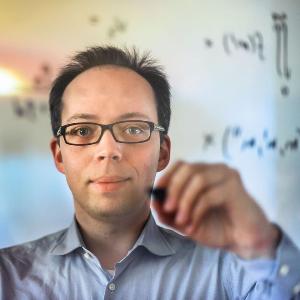
Prof. Dr. Til Birnstiel | © LMU
Til Birnstiel has been Professor of Theoretical Astrophysics at LMU since February 2017, where he heads a research group on planet formation.
On average, every star in the universe is orbited by at least one planet. We can therefore safely conclude that planet formation must be a robust process. However, astrophysicists still do not understand exactly how planets come about. Current models are usually based on very simple assumptions, such as smooth gas disks in which planetesimals, that is, the precursors of planets, already exist everywhere. More recent findings, by contrast, show that substructures already exist in the early stages of the disks and can play a decisive role in planet formation. There are also episodic bursts of luminosity that can heat up the planet-forming disk and thus permanently change the composition of the planetary building blocks. Until now, however, there has been a lack of suitable techniques for modeling these dynamic, complex systems on the computer. This is where EARLYBIRD (Early Build-up of Ringed Planet-Forming Disks) from Til Birnstiel comes in. The goal of his project is to trace the planet-forming material and its composition from the initial formation of planetesimals and eventually planets, showing how these processes are reflected in observed disks and in the properties of exoplanets. Drawing on pioneering work on the growth and transport of dust particles, EARLYBIRD will employ highly innovative 3D modeling techniques that are two orders of magnitude faster than previous approaches.
.
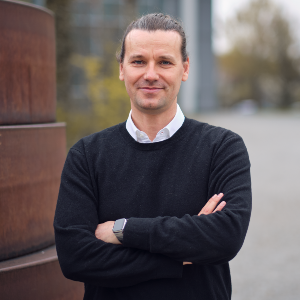
Prof. Dr. Benjamin Fingerhut | © LMU
Benjamin Fingerhut is Professor of Theoretical Chemistry at LMU. His main research interests include ultrafast dynamics in condensed phase.
The interaction of a quantum system with its environment can lead to novel phenomena and possibilities that are not present in isolated quantum systems. This creates the need for computational methods for precise and reliable simulations of the many-body dynamics of open quantum systems. In his project NG-Quapi (Next Generation Quasi-Adiabatic Propagator Path Integral (Quapi) Methods for Condensed Phase Quantum Dynamics), Fingerhut plans to further develop so-called quasi-adiabatic propagator path integral (Quapi) methods to facilitate simulations of the quantum dynamics of complex systems and environments and obtain a better understanding of the phenomena in such systems. As envisioned, the new approaches and algorithms will permit the development of a comprehensive numerical software platform for such simulations. This development has great potential, as it would enable extremely challenging simulations that are not yet possible on conventional computers and are conceivable only on customized quantum devices.
Having completed his doctoral studies at LMU, Benjamin Fingerhut worked as a researcher at the University of California, Irvine, and at the Max Born Institute for Nonlinear Optics and Short Pulse Spectroscopy in Berlin, before returning to his alma mater in 2022.
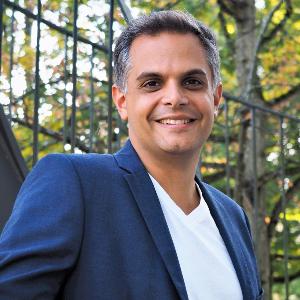
Dr. Steffen Hurka | © Christina Steinbacher
Dr. Steffen Hurka teaches and researches at LMU’s Geschwister Scholl Institute of Political Science and heads the Emmy Noether Group “EUPLEX – Coping with policy complexity in the European Union.”
Democracies are constantly faced with the difficult task of reconciling a huge variety of worldviews, interests, and values in coherent legislation. In view of the increasingly antagonistic political climate across the globe, accomplishing this task has never been as difficult – or as important – as it is today. Although laws are vitally important for the legitimacy of democratic government, our knowledge of how the design and stability of those laws are related is still rather limited. In his project DEMOLAW (The Design, Creation and Survival of Democratic Laws), Steffen Hurka will analyze legislative texts from three different political systems (US, UK, EU). He will use state-of-the-art computational methods to reveal what makes some laws stable over a long span of time, whereas others are constantly amended and often fundamentally rewritten. Why does the structure of democratic legislation differ according to laws, policy areas, political systems, and over time? And how can we find standard measures for comparing different systems? Hurka’s approach is designed not only to establish a theoretical framework, but also to pave the way for a computer-aided analysis of legislative contents, thus improving our ability to investigate democratic decision-making.

Prof. Dr. Julian Stingele | © Jan Greune / LMU
Professor at LMU’s Gene Center Munich, Julian Stingele investigates mechanisms that detect and resolve damage to biomolecules.
Cells are constantly confronted with complex crosslinking damage to their biomolecules, which are caused by reactive metabolites as well as exogenous sources. In his project DECONSTRUCT (Deconstruction of complex crosslinking damage), Stingele will investigate how crosslinking damage to RNA and proteins affects cellular homeostasis. To this end, he will employ novel experimental model systems combined with genetic and proteomic approaches to elucidate the molecular mechanisms by which crosslinking damage can be detected and resolved. He plans to use these findings to discover the physiological role of RNA and protein damage in the reaction to formaldehyde generated during cell differentiation and to crosslinking chemotherapeutics. Stingele expects the results will make an important contribution to our understanding of cellular quality control and genome stability and will have far-reaching effects on cancer therapy and our understanding of aging processes.
Julian Stingele completed his doctorate at the Max Planck Institute of Biochemistry in Planegg-Martinsried. Subsequently, he worked as a postdoctoral researcher at the Francis Crick Institute in London, before coming to LMU in 2017.
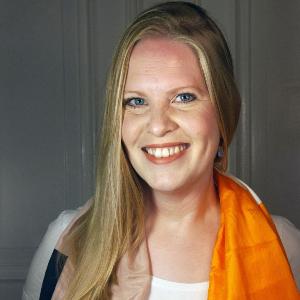
Associate Professor Anna Grasskamp | © Andreas Till Grasskamp
Anna Grasskamp is Associate Professor of Art History and Visual Studies at the University of Oslo. She has been associated with LMU over the years through fellowships at the Munich Centre for Global History and a one-year residency at the Käte Hamburger Research Centre “Dis:connectivity in Processes of Globalisation.”
Grasskamp’s project ECOART – An Ecological History of Eurasian Art: Natural Resources, Aesthetic Practices, and Early Modern Globalization investigates the artistic use and visual representation of geographical, geological, botanical, zoological, and climatic resources in Eurasia, a space dominated by European and Chinese economic spheres of influence, in an era of early modern globalization from 1500 to 1800.